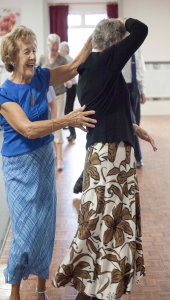Understanding Everyday Participation reported on some of its recent research findings at the project’s BSA panel presentation on Wednesday 5 April 2017 .
Papers presented:
Everyday Participation, Creativity and Working Lives – Gilmore, A., Miles, A.
This paper addressed the separation of work and leisure in cultural sociology and in cultural policy studies by reconsidering the interdependencies between people’s working lives, their involvement of ‘creative’ activities, and their perceptions of ‘cultural’ places.
It examined how local histories of work, employment and industrial identity impact on community engagement, understandings and practices of ‘creative economy’ and attitudes towards ‘the cultural city’.
The Life Course Dynamics and Socio-Spatial Mobility Effects of Everyday Cultural Practices – Leguina, A., Miles, A.
Several key questions both for the Understanding Everyday Participation project and for the sociology of cultural consumption in general were examined:
- How far is cultural consumption in adulthood determined by consumption during childhood and adolescence?
- How do living conditions during adolescence impact on cultural consumption during childhood and adulthood?
- What is the effect of social and geographical mobilities on participation patterns across a lifecourse?
The problem of how best to mobilise participation indicators available in different sources and which vary in nature was a central part of this paper.
The Cosmopolitan Everyday: Recovering Culture, Community and Citizenship for a Progressive Politics – Ebrey, J., Miles, A.
In reorientating Conservative Party policy and philosophy away from liberalism and globalisation, Teresa May seeks to mobilize a reordered lexicon prioritising ‘British (English) values’.
In contrast to Nicola Sturgeon, who has insisted that ‘diversity is strength’ (Garavelli, Scotsman 8.10.16), May has suggested that “If you believe you are a citizen of the world, you aren’t a citizen of anywhere”, (Rampen, New Statesman: 7.10.16).

Culter Mill Social Club
Photo: Caroline Edge
With reference to ethnographic research in North East Scotland, undertaken as part of the Understanding Everyday Participation research project, this paper refuted the idea that small communities are resistant to cosmopolitanism.
It discussed whether or not the left, in its counter rhetoric, somehow forgot to foreground the values of negotiated cooperation and solidarity through participation that can be found in the ordinary, mundane dimensions and spaces of everyday life.
